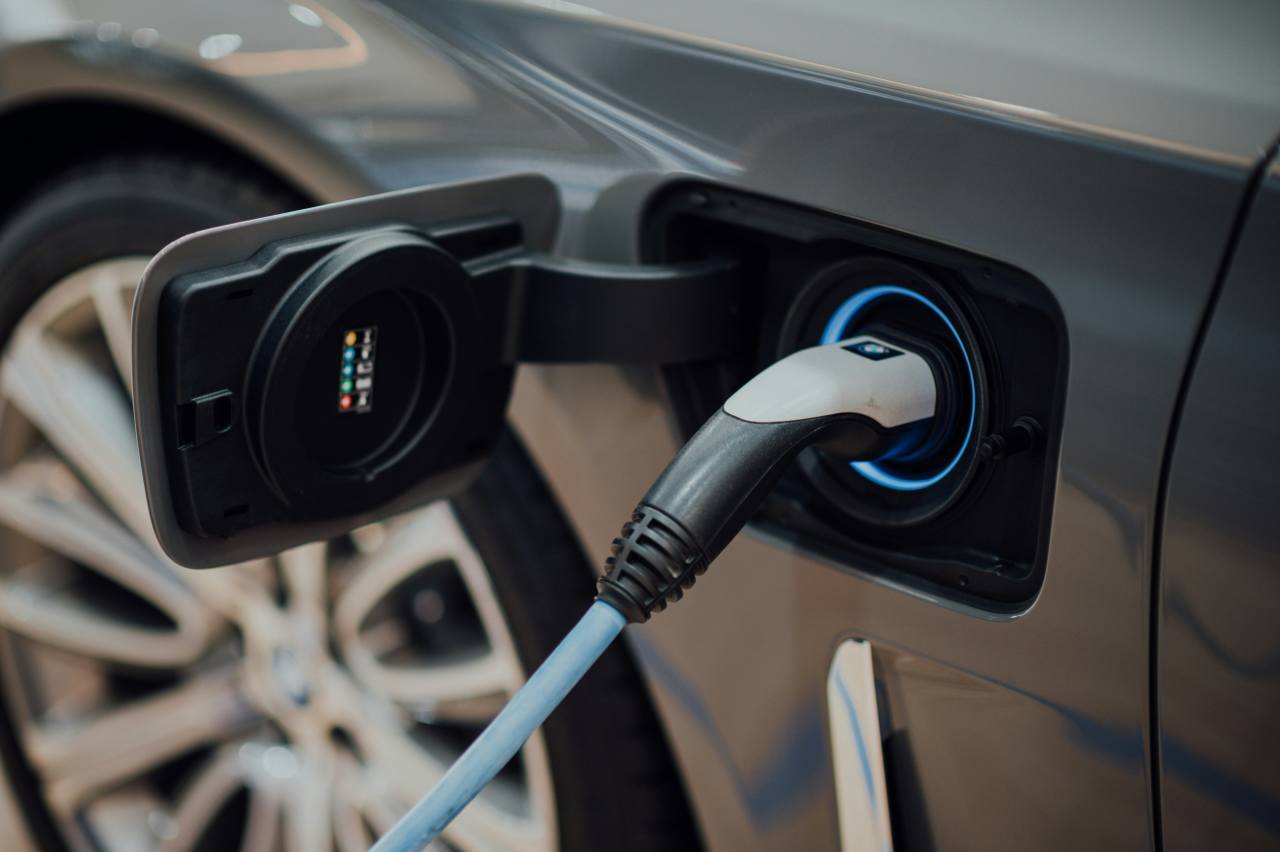Here at CarsGuide, we always talk about finding the right car for you. After all, the Ford Ranger ute might’ve been Australia’s best-selling new vehicle in 2023, but it is not for everyone.
So, when I think about my personal list of requirements for a new vehicle, I think I’ve finally found the model that ticks the highest number of boxes.
Introducing the 2024 Genesis GV60 Performance AWD, a 'Hanauma Mint' example which I’m testing over the next three months as part of this long-term EVGuide review.

Yes, I know there are probably a few of you out there wondering what the Genesis GV60 is in the first place and that’s fair because only 191 examples of it were sold locally last year, representing just 0.7 per cent of the segment it competes in. But that doesn’t mean the South Korean should be ignored.
If you don’t already know, Genesis is Hyundai Motor Group’s luxury brand, much like Lexus is to Toyota Motor Corporation. And the GV60 is the mechanical cousin to the Hyundai Ioniq 5 and Kia EV6 electric vehicles.
That said, while the latter pair is of the mid-size SUV variety, the former is actually one size smaller and with coupe styling to boot – literally.
.jpg)
As such, the GV60’s direct rivals include the popular Volvo C40 Recharge and all-new BMW iX2, both of which are also all-electric small SUVs that are on the larger side for their class.
For reference, the C40 Recharge costs $78,990 to $87,990, plus on-road costs, while the iX2’s pricing stretches from $82,900 to $85,700.
The C40 Recharge’s Twin Motor flagship (click the link above to see my previous long-term review) comes the closest to matching the level of grunt offered by the $113,375 GV60 Performance AWD on test here (more on that later).
.jpg)
Meanwhile, the iX2’s top-spec eDrive30 lines up best with the GV60’s entry-level AWD variant, which asks for $106,375.
Either way, there’s at least a $20,000 gap between the GV60 and its main competitors, so other than outputs, how could it possibly justify such a premium?
Well, it’s worth keeping in mind the cost of ownership, as the Genesis is free to service for the first five intervals over five years or 75,000km (that’s not a typo), while the Volvo and BMW require an outlay of about $400 (cheap) and $2200 (average), respectively, for the first three intervals over six years or 60,000km.
.jpg)
Note all three models come with a five-year/unlimited-kilometre warranty.
But there’s more to the GV60’s value equation than its strong aftersales support. For one, the Performance AWD’s list of standard features is exhaustive, starting with dynamic dampers, an electronically controlled rear mechanical limited-slip differential (e-LSD), dusk-sensing Matrix LED headlights, rain-sensing wipers, 21-inch alloy wheels (with 255/40 Michelin Pilot Sport EV tyres and a repair kit), auto-folding digital side mirrors (with puddle lights), roof rails, keyless entry, rear privacy glass, a power-operated tailgate and a rear spoiler.
Inside, the GV60 Performance AWD features keyless start, a 12.3-inch touchscreen multimedia system, wired Apple CarPlay and Android Auto support (I miss wireless), satellite navigation (with live traffic), digital radio, a 17-speaker Bang & Olufsen sound system, a 12.3-inch digital instrument cluster, a 12.0-inch windshield-projected head-up display, a wireless smartphone charger and a panoramic glass roof.
.jpg)
There's also a power-adjustable steering wheel with heating, power-adjustable front seats with massaging (driver only) cooling and heating, heated rear seats, dual-zone climate control with a 6.0-inch touchscreen, quilted Nappa leather upholstery ('Glacier White'/grey in my test vehicle), a suede headliner and ambient lighting. Deep breath.
Safety-wise, there’s also autonomous emergency braking (with junction assist and pedestrian and cyclist detection), lane-keep and steering assist, active blind-spot monitoring and rear cross-traffic alert, adaptive cruise control (with stop and go functionality), traffic-sign recognition, driver attention alert, high-beam assist, rear AEB, park assist surround-view cameras, parking sensors, safe exit assist, rear occupant alert and tyre pressure monitoring as well as eight airbags (dual front, side and curtain plus front-centre and driver’s knee).
Needless to say, there’s a lot on offer here and certainly more standard equipment than the C40 Recharge Twin Motor.
Under the bonnet, the GV60 Performance AWD goes even further with two permanent magnet synchronous electric motors, split between the front and rear axles for on-demand all-wheel drive.
Combined outputs? How does 320kW of power and 605Nm of torque sound? Pretty good, right? Well, if you engage 'Boost' mode, those figures climb to an even more formidable 360kW and 700Nm.
For reference, the C40 Recharge Twin Motor ‘only’ manages 300kW and 660Nm. Point being, the 2210kg Genesis means business, as evidenced by its 0-100km/h acceleration time of four seconds flat, making it 0.7s quicker than the 2154kg Volvo.
Note the ‘regular’ GV60 AWD’s dual-motor powertrain produces a combined 234kW and 605Nm to help its 2160kg frame complete the triple-digit sprint in 5.5s, helping it to eclipse the 2095kg iX2 eDrive30’s 230kW/494Nm and 5.6s efforts. But I digress.
Either way, the GV60 features a 77.4kWh (gross) lithium-ion battery pack, which delivers a WLTP-rated combined-cycle driving range of 466km in the Performance AWD or 470km in the AWD.
Focusing on the former, that’s quite a reasonable maximum distance between charges, but how does it stack up in the real world?
.jpg)
Well, in my first month with the GV60 Performance AWD, my average energy consumption was 19.3kWh over 718km of driving, which predominantly took place in city traffic.
Given its useable capacity is 74.0kWh, that translates to a real-world driving range of 383km. While about 18 per cent lower than the claim, that’s not a bad result given the relatively low mix of highway time and my often heavy right foot.
Either way, it’ll be interesting to see how much better the Genesis performs – if at all – over the next two months.
.jpg)
When it comes to charging, my conundrum remains the same, as I still live in an apartment building that has no accessible power outlets in its car park.
That said, it’s just my luck that Ampol has recently opened two of its new AmpCharge 180kW DC fast chargers at the petrol station 400m down the road.
And in even better news, the GV60 is able to take full advantage of it as its maximum DC charge rate is 350kW, which is still very rare these days.
.jpg)
My first attempt with a AmpCharge 180kW DC fast charger saw the GV60 use its Type 2 CCS plug to mostly charge at a rate of about 130kW. As a result, the battery charged from 16 per cent capacity to full in 45 minutes.
As impressive as I may think that is, if you were lucky enough to stumble upon a 350kW DC ultra-fast charger (there aren’t many of them around), 10 to 80 per cent takes as little as 18 minutes.
If you’re off to pub trivia tonight, the GV60’s maximum AC charge rate is 11kW, with a standard 7.0kW wallbox able to charge its battery from 10 to 100 per cent capacity in 11 hours and 45 minutes – an overnight job, then.
.jpg)
A 230V domestic power outlet will do the same job in a much more leisurely 34 hours and 20 minutes. Personally, I won’t be in a position to put either of these claims to the test.
Speaking of which, we’ve reached the end of the introductory first instalment of my long-term EVGuide review of the 2024 Genesis GV60 Performance.
In the second, I’ll let you know what I think of its exterior and interior designs as well as deep-dive its practicality, including its unique vehicle-to-load (V2L) functionality.
And in the third and final one, I’ll fully detail the driving experience, share my miscellaneous thoughts and deliver my all-important final verdict.
There’s plenty to look forward to, so see you next time!
Acquired: December 1, 2023
Distance travelled this month: 718km
Odometer: 3947km
Average energy consumption this month: 19.3kWh/100km
Genesis GV60 2024: Performance LUX (awd)
| Engine Type | 0.0L |
|---|---|
| Fuel Type | Electric |
| Fuel Efficiency | 0.0L/100km (combined) |
| Seating | 5 |
| Price From | $112,757 |
| Safety Rating |
|
Pricing Guides

Range and Specs
| Vehicle | Specs | Price* |
|---|---|---|
| LUX (awd) | Electric, 1 SPEED AUTOMATIC | $105,757 |
| LUX DSM (awd) | Electric, 1 SPEED AUTOMATIC | $106,384 |
| Performance LUX (awd) | Electric, 1 SPEED AUTOMATIC | $112,757 |



.jpg)

.jpg)
.jpg)
.jpg)
.jpg)
.jpg)
.jpg)
.jpg)
.jpg)
.jpg)
.jpg)
.jpg)
.jpg)
.jpg)
.jpg)
.jpg)
.jpg)

.jpg)


































.jpg)
.jpg)

_0.jpg)
.jpg)
.jpg)
.png)


.jpg)

Comments